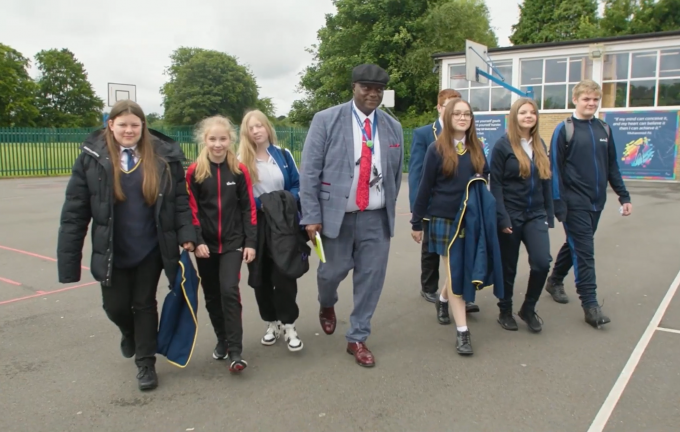Many families, even those far from the breadline, are struggling. Parents and carers are having to make tough decisions, trimming back on food shopping, energy use and the nicer things in life, such as holidays and meals out.
In the schools I work with, both in my role with Thrive and as a trustee and governor, we're noticing that children are coming into school with much lower levels of social and emotional learning.
Compounding the impact of the pandemic
The long tail of the pandemic is the underlying factor here – the learning and socialisation of many children was badly affected as we know – but the cost-of-living crisis has compounded those issues.
Children are finding it more difficult to settle into learning, so they are ‘butterflying’ between activities, rather than focusing on one. We're also seeing lower levels of language acquisition and children struggling to link those words together to make meaning.
It means that if they are picking up on stressful situations at home created by cost-of-living pressures, they are less able to communicate their anxieties and frustrations effectively. And that makes it difficult for adults to meet their needs.
These frustrations leak out into behaviour. We’re noticing increases in low-level, disruptive behaviours in children such as rocking or tapping, or just getting up and wandering around.
The biggest impact, though, is on how children connect with one another. It’s through that relational attachment that children develop empathy. It helps them to connect with their families and wider society.
But if children are not yet relationally available – cost-of-living related stress at home doesn’t help – they can find it difficult to be alongside others in the classroom.
How adults can help
It’s down to every adult, whether in the family or working with children in a professional capacity, to think more carefully about how we express our frustrations and concerns about the impact of the crisis when children are around.
Children pick up on the space between the words as much as the words themselves. Adults aren’t always great at helping children to understand what’s going on and why. If things are left unsaid children, especially younger ones, will create their own narratives. These often involve them casting themselves as being to blame for their family’s financial predicament.
Being conscious of how we respond to these cost-of-living pressures is one part of the picture. Responding in a steady, methodical and careful way will help to lower the levels of anxiety in children. Older children will respond well to calls for practical action, such as involving them in a green committee to reduce energy costs around the school.
There’s a broader picture to consider, too. In schools, it is about creating and maintaining a culture which embodies a strong sense of safety – one in which children experience as well as perceive a strong sense of safety and protection.
The role of schools
Making sure that the school behaviour policy includes a relational aspect, with appropriate training for the adults, plays a part in this, and Department for Education funding for mental health and well-being leads can help. Typically these grants are pretty generous, and there may be a chunk of cash left over after you've spent some of it on mental health lead which you can use to pay for additional mental health and wellbeing training for staff, or to fund cover while they do the training.
Simple changes in the classroom can also play a part. A classroom quiet zone can help stressed and anxious children depressurise. For those struggling to articulate how they feel in words, a mood board with feelings symbols can help.
It is an increasingly stressful world and many children are feeling the strain. The more aware we are of how children are being impacted in a crisis-hit world the more we can do. The support, the tools and the desire to help are there.
Viv shared her perspectives at National School Governors Awareness Day – download the report at www.strictlyeducation.co.uk/ebooks/the-round-up-2023 – and is hosting a free webinar sharing tools and strategies on supporting children and young people who may be feeling overwhelmed on 15 May at 3.30pm.




_680.jpg)

_680.jpg)